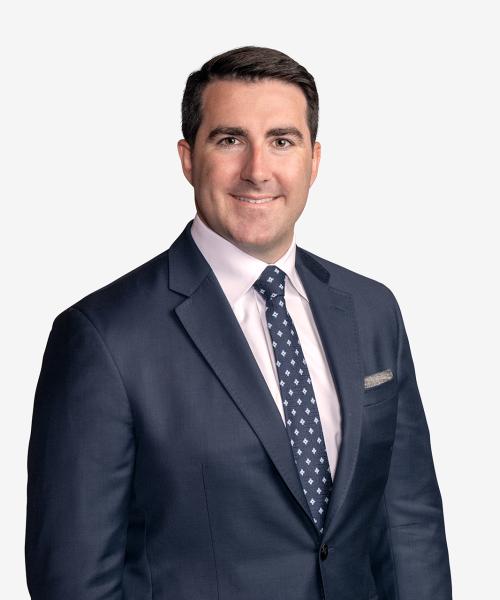Friday Enforcement Wrap: DOJ Updates Justice Manual
DOJ News
DOJ Updates Justice Manual To Limit the Issuance and Use of Guidance Documents
In the waning days of 2018, the DOJ amended its Justice Manual (Manual) to add Titles 1-19.000 and 1-20.000, which address DOJ’s directive to limit the issuance and use of guidance documents. These updates put into practice policy changes that were announced by Attorney General Jeff Sessions through a memorandum dated November 16, 2017 (“Sessions Memo”), and by Associate Attorney General Rachel Brand through a memorandum dated January 25, 2018 (“Brand Memo”). Our Investigations Blog covered the Sessions Memo and the Brand Memo last year in a blog post titled “Is DOJ Changing Its Approach to Enforcement? What Regulated Entities Need to Know,” available here.
Title 1-19.000 limits the various divisions within the DOJ from issuing guidance documents “that purport to create rights or obligations binding on persons or entities outside the Executive Branch (including state, local, and tribal governments).” In addition, DOJ components “may not issue guidance documents that create binding standards” used to determine compliance with regulatory or statutory requirements. The newly added section requires DOJ components issuing guidance documents to make clear that such documents are not binding outside the Executive Branch.
Title 1-20.000 explains that DOJ’s “[c]riminal and civil enforcement actions…must be based on violations of applicable legal requirements, not mere noncompliance with guidance documents issued by federal agencies, because guidance documents cannot by themselves create binding requirements that do not already exist by statute or regulation.” Accordingly, the DOJ may not treat “a party's noncompliance with a guidance document as itself a violation of applicable statutes or regulations.” The updated Manual instructs against “bring[ing] actions based solely on allegations of noncompliance with guidance documents.” However, DOJ may “continue to rely on agency guidance documents for purposes, including evidentiary purposes that are otherwise lawful and consistent with the Federal Rules of Evidence, that do not treat such documents as creating by themselves binding requirements that do not already exist by statute or regulation.” The Manual provides a number of examples of appropriate use of guidance documents, including to establish: (1) scienter, notice, knowledge, and mens rea, (2) professional or industry standards or practices and duties, customs or practices of government agencies, (3) scientific or technical processes, (4) party’s compliance with guidance, and (5) legal or factual context.
The updated sections of the Manual are available here and here.
Washington Laboratory Pays $1.8 Million To Settle Allegations of Improper Kickbacks
A toxicology and genetic testing laboratory agreed to pay $1.8 million to resolve False Claims Act (FCA) liability related to an alleged kickback scheme.Washington-based Molecular Testing Labs (MTL), a wholly owned subsidiary of Blackfly Investments, LLC, allegedly made payments to local laboratories in exchange for referrals of Medicare and TRICARE beneficiaries. The DOJ launched an investigation into MTL after receiving a complaint from a Department of Health and Human Services hotline.
The DOJ’s press release is here.
Florida Doctor Settles FCA Allegations for $1.7 Million
A physician from Fort Myers, Florida, agreed to a civil settlement that will pay $1.718 million to United States. The government alleged that the physician violated the FCA by receiving kickbacks associated with anesthesia services and by causing the submission of medically unnecessary urine tests.
The DOJ’s press release is here.
Litigation News
Fourth Circuit Dismisses Former United Airlines Mechanic’s FCA Claim For Failing to Adequately Plead Presentment But Reinstates Retaliation Claims
The US Court of Appeals for the Fourth Circuit affirmed the dismissal of a former employee’s FCA claims against United Airlines (United), but revived the whistleblower’s retaliation claims. Relator David Grant, a maintenance technician that serviced military transport planes, alleged that he complained repeatedly about United’s repair work on engines but was unlawfully terminated. Specifically, Grant alleged that United “pencil wrapped” repairs, used uncalibrated and uncertified tools, and allowed unqualified inspectors to certify repairs.
In a split two-one decision, the majority affirmed the district judge’s decision to dismiss Grant’s FCA claims. The court noted that the FCA claims are subject to Federal Rule of Civil Procedure (FRCP), Rule 9(b)’s heightened pleading standards. The two-judge majority found that Grant did not sufficiently plead with particularity how United presented fraudulent claims to the government. On the other hand, Judge Barbara Keenan dissented because, in her view, Grant’s circumstantial allegations that United made at least one false claim and was paid by the government was sufficient under FRCP Rule 9(b).
All three judges agreed that relator’s retaliation claims met FRCP Rule 8(a)’s notice-pleading standard. They determined that Grant adequately plead all three elements of his retaliation claim, that: (1) he was engaged in a protected activity, (2) United knew about his protected activity, and (3) United terminated Grant because he engaged in the protected activity.
The case is US ex rel. Grant v. United Airlines Inc., No. 17-2151, 2018 WL 6786134 (4th Cir. Dec. 26, 2018).
Circuit Court Affirms Defense Verdict in a $350 Million FCA Suit
A three judge panel of the US Court of Appeals for the Fourth Circuit affirmed a unanimous jury verdict in favor of a student loan company, Pennsylvania Higher Education Assistance Agency (“PHEAA”). The circuit court refused to revive a relator’s $350 million suit alleging that PHEAA’s billing practices violated the FCA. The court held that the district court did not abuse its discretion by excluding certain audits of PHEE by the Pennsylvania Auditor General. In addition, the court also determined that the relator’s objections to jury instructions were without merit.
The case is US ex rel. Oberg v. Pa. Higher Educ. Assistance Agency, No. 18-1028 (4th Cir. Jan 8, 2019).
DOJ Intervenes in Medicare Fraud Case Against West Virginia Hospital, Consultant and CEO
The DOJ announced that it has partially intervened in an FCA case alleging that Wheeling Hospital Inc. (Wheeling), its management consultant, and CEO violated the Stark Law and Anti-Kickback Statute. The Stark Law prohibits a hospital from billing Medicare for services referred by physicians that have an improper financial relationship with the hospital. The Anti‑Kickback Statute, in relevant part, prohibits offering or paying anything of value to encourage the referral of items or services covered by federal healthcare programs. The DOJ alleges that Wheeling’s compensation to a number of employed and contracted physicians violated these statutory prohibitions because that compensation was based on the volume or value of the physicians’ referrals or was above fair market value.
The DOJ’s press release is available here.
Magistrate Judge Recommends Dismissing a Pro Se Plaintiff’s FCA Complaint
A federal court in New York adopted a magistrate judge’s recommendation to dismiss a pro se plaintiff’s complaint based on the FCA. The complaint named a variety of defendants, including a bankruptcy court judge and Treasury Secretary Steven Mnuchin. Magistrate Judge Andrew Baxter of the Western District of New York relied on the Second Circuit precedent that qui tam plaintiffs may not proceed pro se. The court also denied the plaintiff’s request for an appointment of counsel because the complaint failed to adequately plead an FCA violation. Accordingly, Judge Baxter recommended that the court dismiss the action as frivolous.
The case is US ex. rel. Anthony Bennett v. Mnuchin et. al., No. 6:18-cv-1403 (W.D.N.Y. Dec. 22, 2018).
New York Attorney General Convicts “Three-Quarter House” and its Director for Medicaid Fraud
Robert H. Corrado and Interline Employee Assistance Program, Inc. (Interline) were convicted for engaging in a systematic kickback scheme and violating patients’ rights. The New York Attorney General’s indictment alleged that Corrado and Interline engaged in an illegal scheme to offer housing to homeless clients at below market rent on the condition that the clients attend treatment at Interline and nowhere else. Corrado and Interline, in turn, received payment from Medicaid for substance abuse treatment claims predicated on this kickback arrangement.
Analysis You Can Use
The Latest from Our Client Alerts
DOJ Reports Nearly $2.9 Billion in False Claims Act Recoveries in FY 2018
The Department of Justice recently published its annual FCA recoveries statistics for Fiscal Year 2018, reporting nearly $2.9 billion in FCA settlements and judgments in FY 2018. Recoveries in health care fraud cases increased from nearly $2.2 billion in 2017 to more than $2.5 billion in 2018, marking the ninth consecutive year in which health care fraud recoveries exceeded $2 billion.
Contacts
- Related Industries
- Related Practices
-
Read Time
12Minutes






